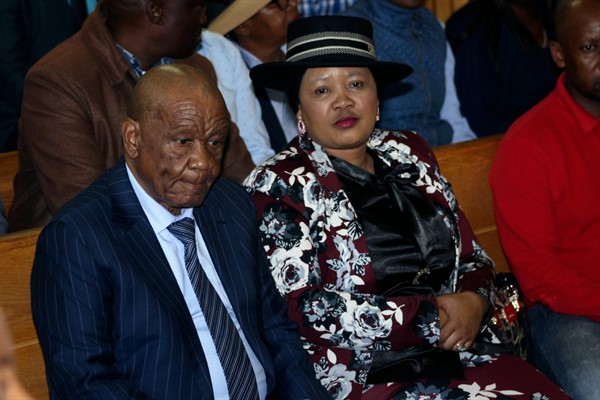Ha Abia is a sprawling, dusty neighborhood on the outskirts of Maseru, the capital of Lesotho. Bisected by the main highway heading south from the city, it flashes past in a blur of roadside taverns, small grocery stores, street vendors and the ubiquitous honking of local taxis. Since 1998, it has been the political home of Lesotho’s two-time prime minister, Thomas Motsoahae Thabane.
In the past year, Thabane has faced growing political opposition, which came to a head in April, when he was charged in connection with his ex-wife’s murder in 2017. Thabane tried for weeks to negotiate a deal that would keep him in power and give him immunity against the charges—but ultimately, his governing coalition collapsed, forcing the political giant into an early “retirement.” On May 20, he was officially replaced, as Moeketsi Majoro took his oath of office as the new prime minister.
Thabane’s departure from government marks a generational turnover in Lesotho’s political leadership, which for decades has been characterized by multiparty infighting and conflicts between him and his longtime political rival, Pakalitha Mosisili, who served two tenures as prime minister, trading off with Thabane. Mosisili first served as prime minister for 14 years from 1998 to 2012, and again from 2015 to 2017. Thabane was in office from 2012 to 2015, and again from 2017 until last month. With both men having finally left the political arena, the question now is whether this shift will bring about a meaningful change in the way that Lesotho’s Parliament and leaders govern. For a small country entirely surrounded by South Africa, and where about half of the population lives below the poverty line—surviving on less than $38 a month—this question could very well be one of life and death.

